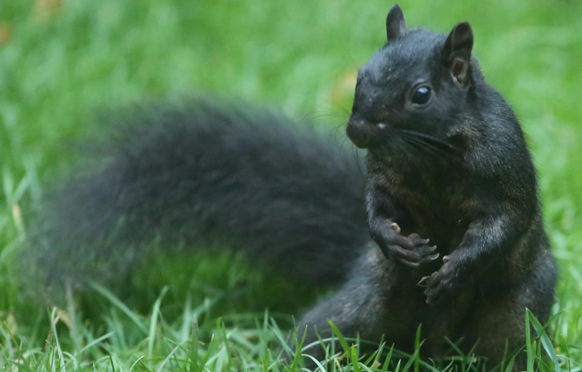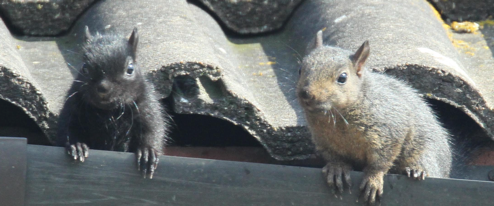Here is a photograph my brother took of a black squirrel.

And here are a pair of juvenile squirrels.

These are from the same litter but you can see one is jet black but the other grey with some sandy bits. I don't know whether this is just colour variation, which was my first thought, or if they have different fathers .which apparently does happen.
These black squirrels are the same species as grey squirrels but just have different colour fur. The grey squirrel is native to the Eastern US and black squirrels are fairly numerous there. At one time I thought the black squirrels in the UK were a local mutation but the current theory is that they are descended from one or more black squirrels that were released, or escaped, from a private collection in the early years of the 20th century.
They are now common in Bedfordshire, Hertfordshire and Cambridgeshire - I've often seen them - and their spread is being studied by Anglia Ruskin University. The spread is slow; although there are estimated to be about 35,000 of them they have seemingly only travelled at about 0.5 of a mile per year since their introduction, which seems quite slow.
Studies point to black grey squirrels having come about from interspecies breeding with American fox squirrels, which occupy a roughly similar geographical range to the greys and which can be several different colours, including black.